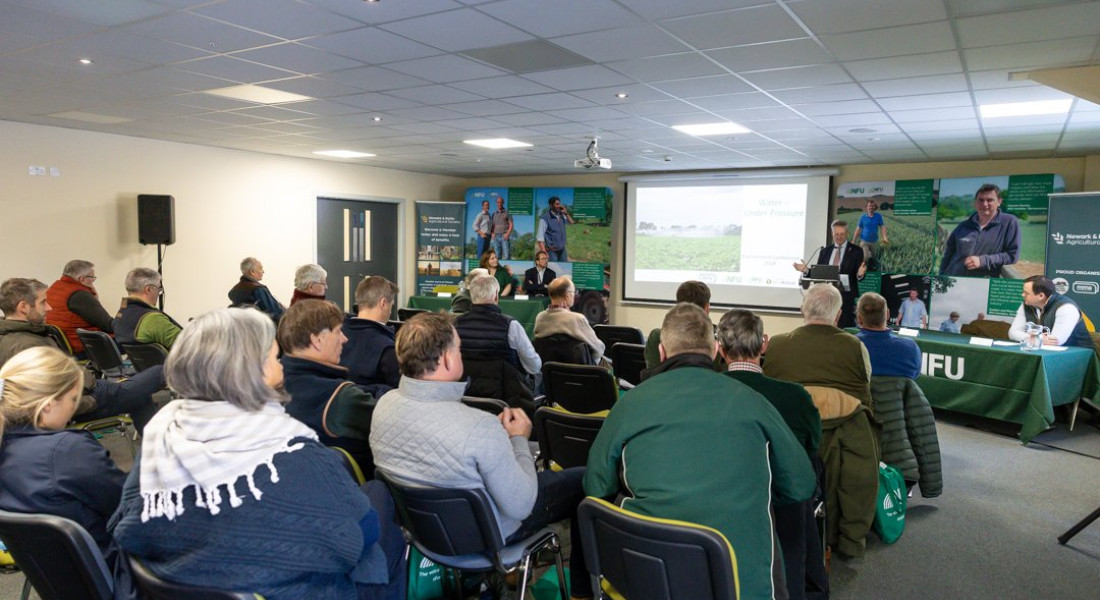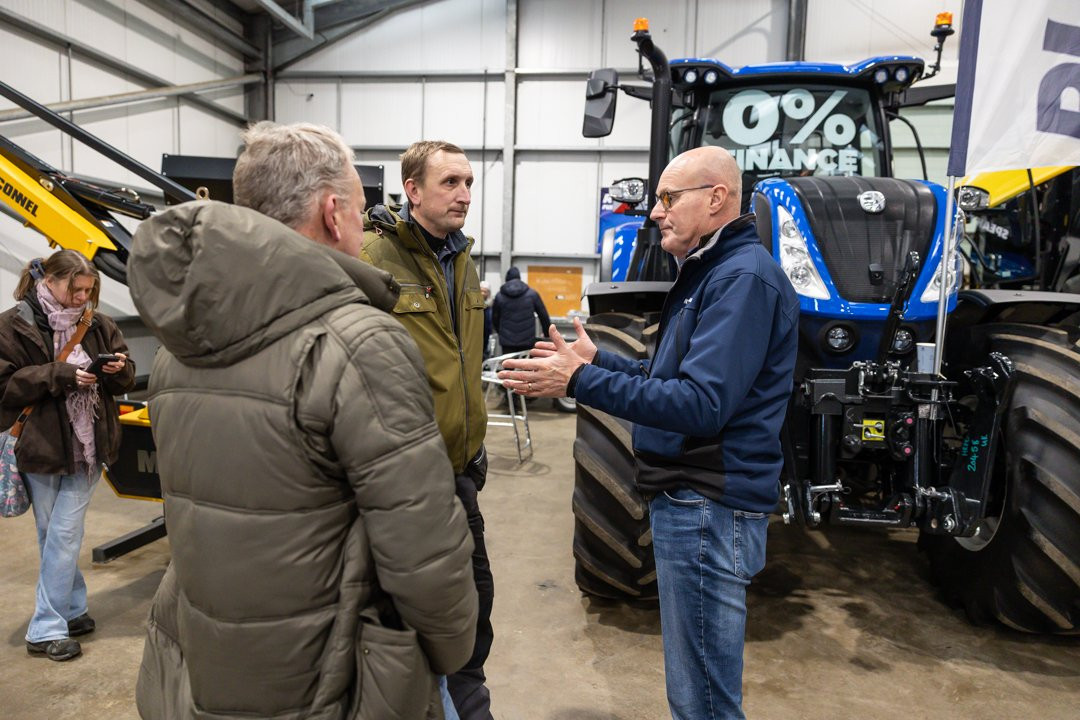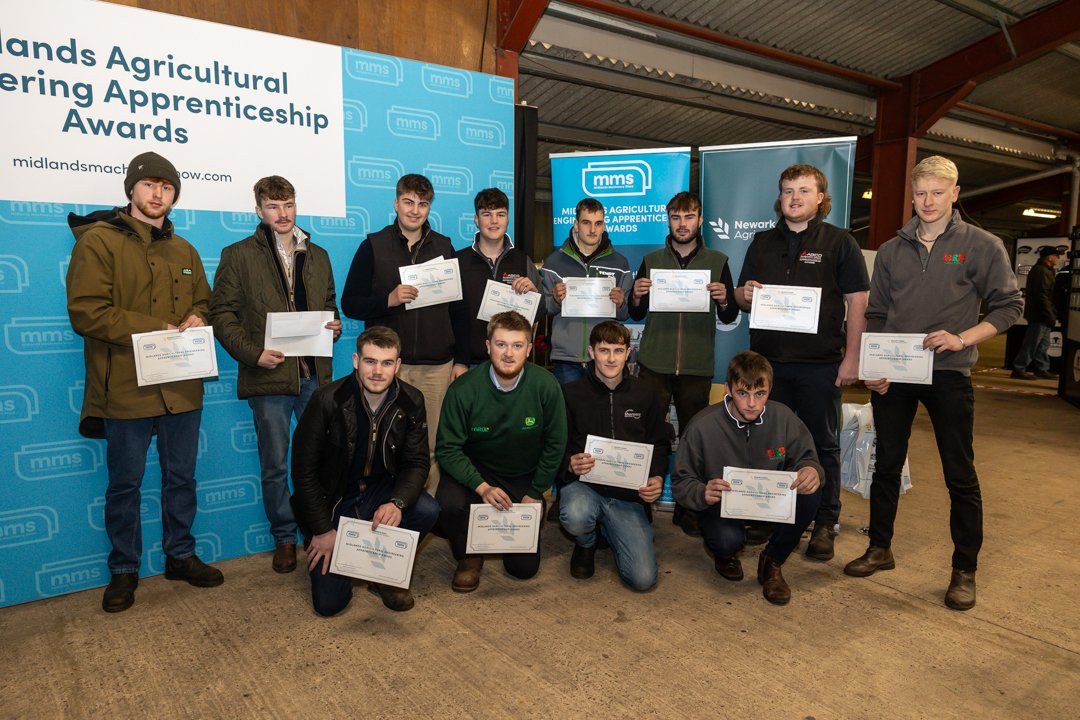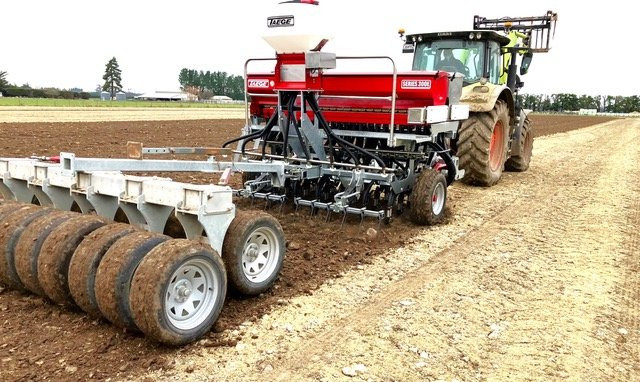Planning for volatility
NFU Vice President David Exwood kicked off the NFU Midlands Environment Conference ‘Water: Under Pressure’ on the first day of the Midlands Machinery Show with a stark warning: the only certainty moving forwards is volatility.
“Resilience is the name of the game, whether it’s financial or resource-driven,” Mr Exwood said.
“We’ve just been through the wettest period for over 100 years. In the past 12 months on my farm in Sussex we’ve had 1.2 metres of rain, which is roughly double what we normally expect. It is extraordinary by any measure, and we have struggled.
“Now it’s quite likely we’re going to have the driest winter we’ve seen for some time. It could be dry for the next 12 months. It could be dry for the next two years. We don’t know. The only certainty is volatility and that’s the challenge.”
Dr Georgina Key from Severn Trent expanded on this need to prepare for volatility, revealing that by 2050 the population in the Midlands will have increased by 12%, summers will be on average 2.6C warmer than today with 16% less rainfall and winters will be warmer and approximately 13% wetter.
“4.6% of current abstraction is vulnerable and a further 8.7% may need to be forgone – that’s 290m litres per day that we can’t take out of the landscape,” she explained.
Severn Trent will invest more than £2bn into enhancing the health of its rivers over the next five years. A key part of this will involve working closely with farmers.
“The reason we do so much work with farmers is that we have very diverse landscapes across our region,” Dr Kay said. “We have the highest nitrogen surplus in the country and the second highest pesticide application rates in the country.
“We also have the highest number of agricultural RNAGS in country – this is a water framework directive term which means ‘Reasons for Not Achieving Good Status’.
“Instead of playing the blame game, it’s about trying to figure out how we can help to reduce the number of reasons why rivers aren’t in a good state.”
Severn Trent has turned its attention away from working with farmers to stop runoff entering the wider water network to creating farmland nutrient budgets designed to make systems more efficient and reduce inputs where possible.
Paul Carrott from Dyson Farming believes the concept of ‘water in – water out’ is key to farming successfully in the future.
Several ambitious projects have been completed at the company’s farms to fulfil this goal, however Paul admits that getting them off the ground wasn’t easy.
Dyson Farming’s approach to water centres around continuous investment in new and updated land drainage, covering soils where possible from above to prevent erosion and slow water infiltration, retain roots within soils to increase organic matter and soil holding capacity, embrace wetland and water habitats, and explore opportunities for water storage and recycling.
“Winter water storage has been a big success story, and we’re switched a lot of summer abstraction to winter abstraction,” Paul said.
Paul also worked alongside the Environment Agency (EA) to re-meander a section of river, which was ultimately fully paid for by the EA and turned around quickly.
However, in general he has experienced difficulties securing funding and getting projects off the ground.
“There are some positive stories, but you’ve got to hit it at the right time and get the right people involved,” he said.
“A lot of the stuff we’ve had real success with we’ve done ourselves,” he admits.
Collaboration will be essential moving forwards, he predicts.
“There is a limit to how much you can abstract and when, so you’ve got to get going,” he says.
“That will be key to actually delivering on this stuff – you can’t do it as an individual.”



